Click below to open PDF copies of the FOI responses and accompanying documents:
- DEFRA Response
- Forestry Commission Response
- Forestry Commission sites in which the Wildlife Trusts have an interest in more active management
- NT Expression of Interest – Forestry Commission Land of potential interest to the National Trust
- Forestry Commission England Proposed Woodland Asset Sales 2010-11. Notifications List.
- Briefing paper outlining Our Forests FOI submission and questions to NGO’s
Amazing coincidence!
– 5th October: Our Forests issue press release re: Government failure to respond to our Freedom of Information/Environmental Information submission.
– 6th October: Our Forests receive responses from Defra and Forestry Commission
No sooner had we sent out the press release and background briefing about the lack of any substantive response to our questions under FOI and EIR procedures about the proposed disposal of our public woods and forests than both Defra and the Forestry Commission sprang into life and sent in their replies. It challenges credulity that we would have received the responses yesterday (6th October), were it not for our press release of 5th October, pointing out that the 40-day deadline as prescribed by the Information Commissioner’s Office expired on 3rd October and we were therefore logging a formal complaint.
The delays in responding (following an initial positive response from the Forestry Commission that “we will be able to sort this out fairly quickly”) were justified by both Defra and the Forestry Commission on the grounds of the “particularly complex request” (FC) and the “complexity & volume of the information requested” (Defra).
Judge for yourselves (the responses posted in full above and at gabrielhemery.com) – but the minimal information that has been supplied does not give the impression of having been produced after wrestling with a “particularly complex request”. Our conclusion is that either both bodies have had the responses sitting around waiting for us to prod them into action or they were pulled together at the last minute in reaction to our formal complaint.
Perhaps the most astonishing statement amidst the little information either body has sent us, is the following statement from the Defra response. As far as we can understand it, the statement seems to be saying that Defra has withheld some of the recorded notes of meetings and discussions that took place despite them being in the public interest because it has taken upon itself to decide that ‘these might well give the public and media the impression that some dubious dealings went on – when of course they didn’t, but we (the public and media) would be bound to get the wrong end of the stick…’
“We recognise that there is a public interest in disclosure of information concerning government meetings and discussions about the future of England’s public forest estate. However, where incorrect assumptions are made or expectations raised through publication of discussions and views exchanged in earlier communications, government staff resources would need to be diverted to respond to any incorrect media stories and campaigning based on such stories. Given the ongoing heightened interest in forestry policy, there would be a clear risk of being drawn into a public debate on matters which are not government policy. Therefore we have concluded that in most of the circumstances for this case, the information relating to notes of meetings and discussions should be withheld.”
The point of the Freedom of Information Act and the Environmental Information Regulations is to provide the public with greater transparency over policy making. As such the public (and the media) should surely be given the opportunity to judge for ourselves what the import of those meetings and discussions is – rather than be patronised as being only likely to draw “incorrect assumptions” from them?
Our Forests will come back with a more detailed response, once we have thoroughly digested and sought to unpick the minimal information that Defra and the Forestry Commission appear to have sent through, but our immediate reactions are:
- the delays on claimed grounds of “complexity & volume of information requested” do not compute with the paucity of the responses provided.
- The responses do not tell us much. Perhaps there is not much to tell? If so, that would suggest that the Government’s intention to dispose of all of the woods and forests that make up the public forest estate by one mechanism or another was set in motion with astonishingly little preparation.
- But the little information we have received does not convince us that this is the whole story. The period we requested details of meetings or discussions between officials and bodies (UK/overseas) as to the latter taking on any parts of the public forest estate was from 1st Jan 2010 – 29th July 2011. Defra acknowledges there were 6 meetings or discussions between: 20th Oct – 8th February, but does not provide information re: any prior to or post those six. The Forestry Commission refers to approaches made to all the NGOs specified (NT, RSPB, TWT, WT) in July 2010 as to taking on parts of the PFE- referring to these as relating to the “ongoing asset disposal programme” 2010/11. We take that to mean the initial 40k has (15% of PFE) that was possible to dispose of without requiring changes to the legislation i.e. via the introduction of the now dropped Public Bodies Bill. Although there do also appear to have been expressions of interest from some NGOs (NT) for sites not in that initial 40k has list.
- In August, the NGOs responded to the FC:
– National Trust provided a list of ‘sites of potential interest’ = 22 sites, of which 11 = leased by FC from NT as freeholder;
– The Woodland Trust is quoted as saying it was not interested;
– The Forestry Commission response includes a list bearing the Wildlife Trusts’ logo, which appears to identify around 170 sites. Many of these may be adjacent to or part of existing Wildlife Trust holdings, but that is not clear.
– The RSPB stated it was only interested in discussing the lease on one site, Rempstone, in Dorset.
Were these the responses that led officials to record in the Impact Assessment cited in Our Forests’ background briefing that members of Wildlife Link had expressed an interest in acquiring c. 10,000 hectares of the public forest estate?
- By October 2010 and certainly January 2011 it was out in the media that the Government was up for disposing of as much of, if not all of the public forest estate. The public consultation on the disposal proposals was launched on 27th January 2011. According to notes of meetings from Defra, the Secretary of State, Caroline Spelman had meetings with the National Trust on 28th January 2011 and the Woodland Trust on 2nd February 2011. The Woodland Trust’s meeting was on the same day that David Cameron made the comment in the House of Commons that,
“I am, of course, listening to all the arguments that are being put on this matter. However, I ask whether there are organisations, such as the Woodland Trust and the National Trust that could do a better job than the Forestry Commission. I believe that there are.”[i]
It is not clear from the minimal documentation supplied whether officials met with the Woodland Trust before or after the Prime Minister made that comment. But are we to believe that the Prime Minister had not been briefed on the situation as regards the attitudes of such key conservation bodies by officials and was simply shooting from the hip? The implication, accurate or otherwise, drawn from his comments by many people was that that he believed that both the National Trust and the Woodland Trust were indeed up for taking on more of the public forest estate than they had apparently expressed an interest in from those earlier approaches by the Forestry Commission back in August.
The National Trust was quoted in The Guardian the day after the public consultation was launched as being,
“…poised to offer to take over or buy much of the state-owned English woodland which the government is planning to sell off.
The initiative, says the trust’s director, Dame Fiona Reynolds, could protect in perpetuity not just large areas of “heritage” areas such as the Forest of Dean and the New Forest, but other woodland expected to be offered for sale to communities and commercial enterprises in the biggest change in land ownership for more than 80 years.[ii]
(NB – Our Forests background briefing incorrectly dated this article as 23/1/11 i.e. before the announcement. That has now been corrected.)
However, an earlier article in the Daily Telegraph on 23rd October quoted a National Trust spokesman as saying,
“Potentially this is an opportunity. It would depend on which 50 per cent of land they sold off, if it is valuable in terms of nature, conservation and landscape, or of high commercial value in terms of logging. We will take a fairly pragmatic approach and look at each sale on a case by case basis, making sure the land goes to the appropriate organisations for the right sites, making sure the public can continue to enjoy the land.” [iii]
Our current conclusions:
The responses from Defra and the Forestry Commission have not provided sufficient clarity or transparency over the process behind the disposal proposal to dispel the many rumours that have and continue to circulate.
We believe it is in the public interest to clarify the process further and fully.
It is also surely in the interests of the nature conservation NGOs to have complete clarity as to their involvement or not in this controversial proposal.
Therefore, Our Forests is considering whether to pursue these matters further.














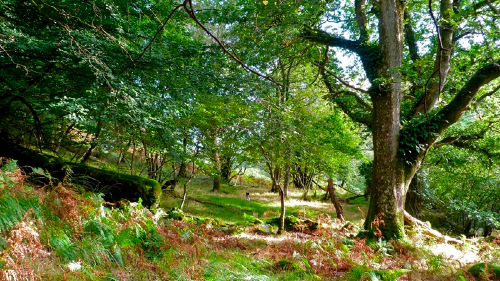
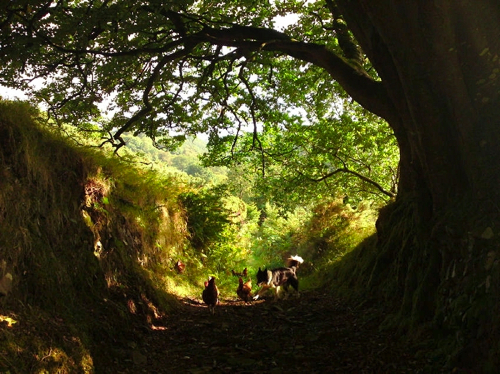
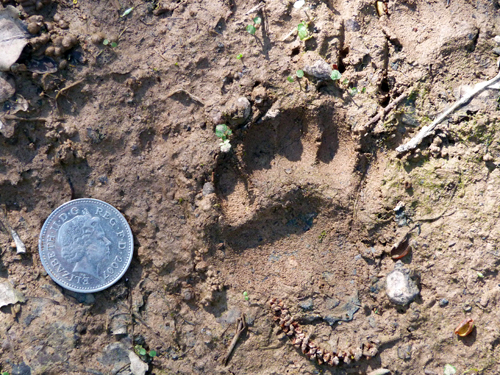

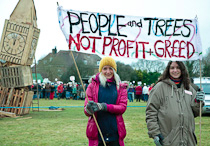


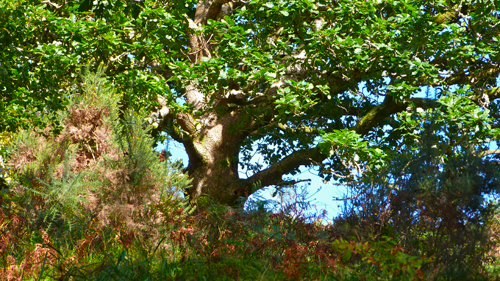

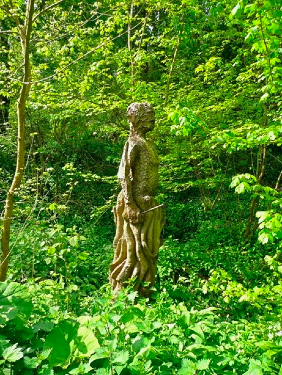
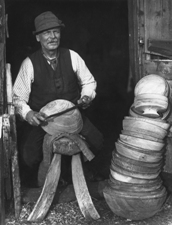



Why should we accept the whole nasty situation without question, when the ongoing cuts to the FC are starting to kick in? I am afraid that the less I hear of the Woodland Trust chiefs being involved the more I am swayed towards an interpretation that they were absolutely complicit. After all Sue Holden was photographed in conversation with David Cameron and the timing of their campaigning, hiring of staff etc., is so consistent with Defra delivery that if there is not collusion, then there is certainly an element of ambulance chasing, which is perhaps even more distasteful than complicity. Such top end ethics need to be cleaned up if they are to take the central stage they wish in the English forest sector. Speaking from North of the border, we are keeping a close watch on things as the manouevring towards a volunteer based industry for multi functional forestry has the potential to cause serious disruption to rural communities dependent on forest products. Having to remain anonymous & silent as our industry is scrutinised by people who are yet to prove their capability to do so is painful. Why have the NGOs kept quiet about the wider influences on the forest industry? Do they simply not care or are they so concentrated on the little vestiges of high amenity or high biodiversity plots of land they own that the rest of the industry can simply go to hell?
Thank for trying to unravel what went on and making certain there is an eye looking out for us all. It is very much appreciated, particularly in these dark days when we all feel like we are flapping about in the breeze, set to break free and disappear at any moment.
Fascinating, and valuable to be pursuing this information.
But: What evidence is there that the coniferous timber production oriented FC IS a better manager of heritage woodlands than the Woodland Trust, the National Trust, Wildlife Trusts and Local Communities?
72% of the forests are exotic conifers.
About 25 square kilometers were clearfelled last year, and
76% of the replanting was with exotic conifers.
I think it quite unfair to “witch hunt” the NGOs who might have become perhaps better managers of a large proportion of the forests, for looking at the proposals.
Evidence that the FC are better managers of forest than some of the NGOs is perhaps lacking, but the pressure placed on them to return a greater profit as well as keeping flow to mills for several years has not been at huge detriment to forests and helped enable heavy funding towards a more NGO like image and management style of forest estate.
I believe that the NGOs require further scrutiny, at the very least they need to be kept on their toes as their motives have become very questionable. There is an extreme imbalance in all funding for the countryside and for town green space, those who fund the NGOs can afford to do so and invariably are privileged enough to benefit from the land that is set aside by the NGOs. For them to have a voice to dictate to government and to us what needs to be done and further protected outside their ownership is unfair unless balanced with representation from the huge mass of the population who cannot afford to be involved and who have as much right to enjoy nature beyond Countryfile or Autumn Watch on their TV screens.
Agree completely with Steven, the NGO situation is not just interesting it is the basis of an argument with regards public forests and UK forestry in general and one which we in the industry are being told not to get involved in!
The comment I left previously has been used on a woodland trust site and was described as inaccurate and mischevious by Richard Barnes. Why is it inaccurate? I was just trying to describe what their position seems to be in my and many others eyes. Why is it mischevious? I am not breaking the silence imposed on the civil servants which are the Forestry Commission, I am a contractor and allowed to say what I want to, when many other voices are silenced, aren’t I? Or is it only the WT who are allowed to spread themselves across the internet dipping in and out of any tree related subject they come across as though they are the oracle. This is a serious problem and the WT seem determined to keep digging a hole for themselves within the industry they so wish to dominate. It is not a witch hunt it is a call for the most democratic of prinicples to be applied to the NGOs as they are to all other elements of society.